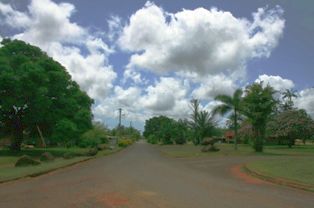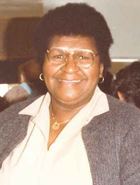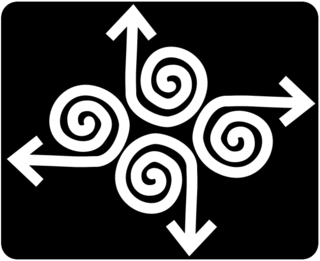Related Research Articles

The second question of the 1967 Australian referendum of 27 May 1967, called by the Holt government, related to Indigenous Australians. Voters were asked whether to give the Federal Government the power to make special laws for Indigenous Australians in states, and whether in population counts for constitutional purposes to include all Indigenous Australians. The term "the Aboriginal Race" was used in the question.

Hope Vale is a town within the Aboriginal Shire of Hope Vale and a coastal locality split between the Aboriginal Shire of Hope Vale and the Shire of Cook, both in Queensland, Australia. It is an Aboriginal community. In the 2016 census, the locality of Hope Vale had a population of 1,015 people.
Reconciliation Australia is a non-government, not-for-profit foundation established in January 2001 to promote a continuing national focus for reconciliation between Indigenous and non-Indigenous Australians. It was established by the Council for Aboriginal Reconciliation, which was established to create a framework for furthering a government policy of reconciliation in Australia.

The Aboriginals Protection and Restriction of the Sale of Opium Act 1897(Qld), was an Act of the Parliament of Queensland. It was the first instrument of separate legal control over Aboriginal peoples, and was more restrictive than any contemporary legislation operating in other states. It also implemented the creation of Aboriginal reserves to control the dwelling places and movement of the people.
Indigenous Australian self-determination, also known as Aboriginal Australian self-determination, is the power relating to self-governance by Aboriginal and Torres Strait Islander peoples in Australia. It is the right of Aboriginal and Torres Strait Islander peoples to determine their own political status and pursue their own economic, social and cultural interests. Self-determination asserts that Aboriginal and Torres Strait Islander peoples should direct and implement Aboriginal and Torres Strait Islander policy formulation and provision of services. Self-determination encompasses both Aboriginal land rights and self-governance, and may also be supported by a treaty between a government and an Indigenous group in Australia.

Henrietta Marrie is a Gimuy Walubara Yidinji elder, an Australian Research Council Fellow and Honorary Professor with the University of Queensland.

Mick Miller was a notable Aboriginal Australian activist, politician, and statesman who campaigned for most of his life seeking greater social justice, land rights, and improved life opportunities for Aboriginal Australians in North Queensland and the rest of Australia.
Commonwealth, State, and Territory Parliaments of Australia have passed Aboriginal land rights legislation.
Indigenous land rights in Australia, also known as Aboriginal land rights in Australia, are the rights and interests in land of Aboriginal and Torres Strait Islander people in Australia; the term may also include the struggle for those rights. Connection to the land and waters is vital in Australian Aboriginal culture and to that of Torres Strait Islander people, and there has been a long battle to gain legal and moral recognition of ownership of the lands and waters occupied by the many peoples prior to colonisation of Australia starting in 1788, and the annexation of the Torres Strait Islands by the colony of Queensland in the 1870s.

Daisy Elizabeth Marchisotti was an Australian social and political activist whose commitment to Indigenous rights saw her remain an active member of the political community up until her death in 1987. She is known for her communist affiliations and was an active member of the Communist Party of Australia.
The One People of Australia League was an Australian Aboriginal political grouping in the 1960s and the 1970s. In contrast to the more radical and left-wing bodies advocating for indigenous sovereignty at the time, OPAL was for most of its existence overtly assimilationist, advocating for the integration of Aboriginal Australians into mainstream white culture. Its main focus was on welfare and housing and as it received monies from the Queensland government for its programs, the work of OPAL had both equal parts support and criticism for not being independent and operated by non-Indigenous organisers.
Evelyn Ruth Scott was an Indigenous Australian social activist and educator.

Eleanor Harding (1934-1996) was an Indigenous Australian from the Torres Strait Islands who worked to attain civil rights for Aboriginal Australians. She advocated for women's rights and adequate educational opportunities, as well, serving with numerous organizations to attain equality for indigenous people. In 2012, she was inducted into the Victorian Aboriginal Honour Roll by the State of Victoria.

The Federal Council for the Advancement of Aborigines and Torres Strait Islanders (FCAATSI), founded in Adelaide, South Australia, as the Federal Council for Aboriginal Advancement (FCAA) on 16 February 1958, was a civil rights organisation which campaigned for the welfare of Aboriginal Australians and Torres Strait Islanders, and the first national body representing Aboriginal interests. It was influential in lobbying in favour of the 1967 Referendum on Aboriginal Australians. It was renamed to National Aboriginal and Islander Liberation Movement (NAILM) in the early to mid 1970s, before disbanding in 1978.
Joseph Daniel McGinness (1914–2003), known as "Uncle Joe'", was an Aboriginal Australian activist and the first Aboriginal president of the Federal Council for the Advancement of Aborigines and Torres Strait Islanders (FCAATSI).
Gladys Dorothy O’Shane was an Australian Aboriginal activist, the sixth child of parents Caroline, née Brown, and Edgar Davis, a labourer, at Mossman, Queensland.
Long-held aspirations held by many Indigenous Australians for positive recognition in their country's federal Constitution began to be realised during the 1960s when an activist uprising influenced the passage of legislation for a referendum which was decisive in enhancing the status of Indigenous people as full citizens. Continuing momentum was accepted by successive governments, eventuating in the creation of the Aboriginal and Torres Strait Islander Commission (ATSIC), under which many relevant government powers and procedures were delegated to Indigenous leaders and officers. ATSIC's management failure and abolition in March 2005 gave strength to demands for non-dissoluble constitutional recognition and powers such as an Indigenous Voice to Parliament as proposed by the Uluru Statement from the Heart. As a result, the Albanese government committed to a constitutional referendum to be held in the second half of 2023.
The Council for Aboriginal Rights (CAR) was founded in Melbourne in 1951 in order to improve rights for Indigenous Australians. Although based in the state of Victoria, it was a national organisation and its influence was felt throughout Australia; it was regarded as one of the most important Indigenous rights organisations of the 1950s. It supported causes in several other states, notably Western Australia and Queensland, and the Northern Territory. Some of its members went on to be important figures in other Indigenous rights organisations.
The Aboriginal-Australian Fellowship (AAF) was a Sydney-based organisation focused on changing the New South Wales Aborigines Protection Board, the wider issues of wage parity and full citizenship for Aboriginal Australians.
Lambert McBride (1918–2002) was an Indigenous Australian and activist for Aboriginal citizenship rights during the 1960s.
References
- 1 2 "Aborigines and Torres Strait Islanders Advancement League". University of Queensland. Fryer Manuscripts. Retrieved 4 December 2020.
Authorized form of name: Aborigines and Torres Strait Islanders Advancement League
- 1 2 3 4 5 6 7 Taffe, Sue (2009). "The Cairns Aborigines and Torres Strait Islander Advancement League and the Community of the Left". Labour History (97): 149–167. JSTOR 27740317 . Retrieved 4 December 2020– via JSTOR.
- 1 2 3 "MS 3718: Papers of Joe McGinness: Series 3: Aborigines and Torres Strait Islanders Advancement League (Cairns), 1960–1979" (PDF). Finding aid created by M. Williams, June 1999; updated by J. Churches, March 2006; and reformatted by Ewan Maidment, November 2016. AIATSIS. pp. 13–14.
{{cite web}}: CS1 maint: others (link) - 1 2 3 4 5 "Organisations". National Museum of Australia . Retrieved 4 December 2020.
- ↑ "Queensland Council for the Advancement of Aborigines and Torres Strait Islanders (QCAATSI)". University of Queensland. Fryer Manuscripts. Retrieved 4 December 2020.
Other forms of names: Queensland United Council for Aboriginal Welfare; Queensland State Council for the Advancement of Aborigines and Torres Strait Islanders. Dates of existence: 1958?–1976?